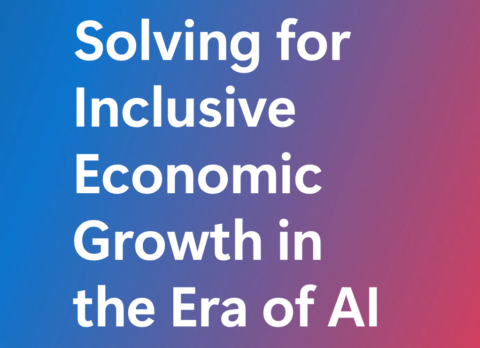
Integrated Profit and Loss Reporting
Understanding the full spectrum of corporate performance goes beyond financial statements. The “Integrated Profit & Loss Reporting” framework is designed to measure the impacts of business activities not just on…

In recent years, an increasing number of companies have actively sought to understand how to better track and measure the social impact they have on the communities they serve. Whether that is being driven by major societal trends, such as the prolonged impacts of the pandemic or protests against gender and racial injustice, legislation like the UK Social Value Model Act (2020), or Board accountability efforts, we can all recognise that the move to measure corporate social impacts is a positive step change in the right direction.
In this context, social impact measurement is poised to take centre stage in 2024, with a particular focus on the rising significance of Social Return on Investment (SROI). By quantifying impacts, business leaders and public sector authorities can understand what is important and material, enabling them to prioritise investments, identify risks, and tell their social impact story.
In the UK, measuring SROI has also taken on new significance as businesses look to ensure their alignment with the Social Value Model (2020), as the public sector is increasingly adopting mechanisms to guarantee that its suppliers are socially responsible and sustainable entities.
In light of these developments, we highlight the important trends in measuring social impact that businesses can anticipate in 2024.
1. Increasing Focus on ‘S’ in ESG Criteria
In an era where businesses and markets are increasingly interconnected and interdependent, ‘S’ – the social factors within ESG considerations – now extend beyond human rights, labour issues, workplace health and safety, and product safety. It now encompasses the impact of modern supply chains and explores corporate activity in its communities, and will garner increasing and significant scrutiny from regulators, governments, customers, and employees. Therefore, a more robust, holistic approach to social impact analysis and reporting is expected and often required of companies.
2. Data-Driven Approaches to Calculating SROI
In 2024, we expect to see a shift from the conventional approaches in Social Return on Investment (SROI) evaluation to a technology-enabled, data-focused approach. The traditional methods, often time-consuming and complex, involve prolonged data collection and analysis. Data-driven methods enhanced by technology emerge as a solution, systematically incorporating crucial material factors supported by solid evidence with objectivity while allowing rapid SROI measurement.
3. AI-Enabled Solutions in Social Impact
The emerging automated tools will use AI-powered surveys and analytics, making SROI assessment more accessible to corporates, non-profits and local governments. This is especially beneficial for smaller organisations with limited resources, offering more efficient data analysis, enhanced accuracy, and quicker insights. Larger companies with technical expertise can capitalise on the opportunity to provide analytics and insights at scale within their networks. .
4. Enhanced Opportunities for Stakeholder Engagement
Stakeholders associated with social programmes often seek robust and interactive insights, where SROI values are easy to access and up to date. The increased adoption of data and technology-enabled platforms can facilitate this process. Providing stakeholders with real-time access to impact data can cultivate greater trust and enable more effective collaboration.
5. Focus on Diversity, Equity and Inclusion
With the growing accessibility of data across different geographies and beneficiary groups, and a similarly growing demand from local governments to provide placed-based impact information, the emphasis on DEI parameters is expected to broaden, and there will be growing expectations that this data is captured and reported in a systematic way.
6. Benchmarking Progress Against the Sustainable Development Goals (SDGs)
Social programmes contribute to different SDGs in different ways, and the amount a programme is contributing to various SDGs can be quantified. With the SDG goals now 6 years away, the pressure mounts to demonstrate that companies are contributing meaningfully towards their achievement, and there will be a rising trend in reporting SDG impact.
7. Aligning Impacts with the UK Social Value Model
In accordance with the UK Social Value Model, companies in the UK are required to focus their social investments on addressing disparities in employment, skills, and pay within their workforce, thereby promoting greater inclusivity and diversity. To meet regulatory requirements, corporations will need to enhance transparency by reporting Social Return on Investment (SROI) values and showcasing their commitment to the Model Award Criteria (MACs) outlined in the act. This increased emphasis on reporting and compliance is essential for qualifying for future public sector contracts, reflecting the evolving trends towards improved transparency and accountability in corporate social responsibility efforts.
We are entering a new phase in the journey of creating social value, driven by the evolution and revolution of technology-based decision-making, particularly with the integration of AI and extensive data gathering. This shift is particularly significant for various stakeholders, including central government, local government, large businesses, investors, SMEs, social enterprises, and civil society. In this dynamic landscape of technological and regulatory changes, where stakes are high and transformations occur rapidly, it opens up new opportunities for companies to deliver solutions with enhanced precision and scale. The widespread adoption of such solutions will effectively address contemporary needs.
Sign up here for early access to Power SROI, an easy-to-use platform to help you measure, analyse and communicate the social and environmental impact of your programmes and investments.
GIST Impact is proud to have joined the Social Value UK network, the professional body for social value and impact management.

Understanding the full spectrum of corporate performance goes beyond financial statements. The “Integrated Profit & Loss Reporting” framework is designed to measure the impacts of business activities not just on…

We are delighted to announce that GIST Impact plays a prominent part in a new Microsoft white paper titled “Solving for Inclusive Economic Growth in the Era of AI”. Featuring…

We are proud to announce that GIST Impact has been profiled in an Environmental Finance article titled “Nature Data – overwhelmingly complex, but a need-to-know”. Offering insights from Pavan Sukhdev…

We were honoured to take part in a panel titled “From ESG & Sustainability to Impact: The Future of Finance” at Reset Connect, the signature event for London Climate Action Week. GIST…

GIST Impact is proud to have been featured in a report by Cape Capital, a Swiss wealth and investment management firm. Among Cape Capital’s offerings – across fixed-income, equity and…
It is our pleasure to announce the publication of a short article co-authored with TMX Datalinx, the Information Services division of TMX Group (the operator of multiple stock exchanges including…